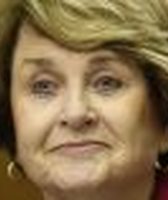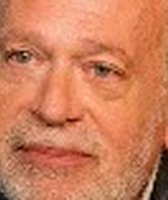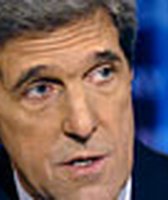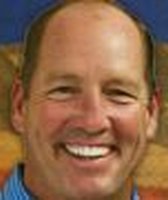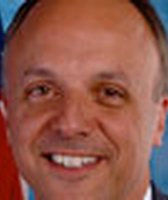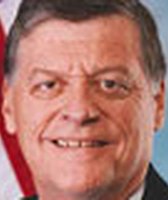Stand up for the facts!
Our only agenda is to publish the truth so you can be an informed participant in democracy.
We need your help.
I would like to contribute
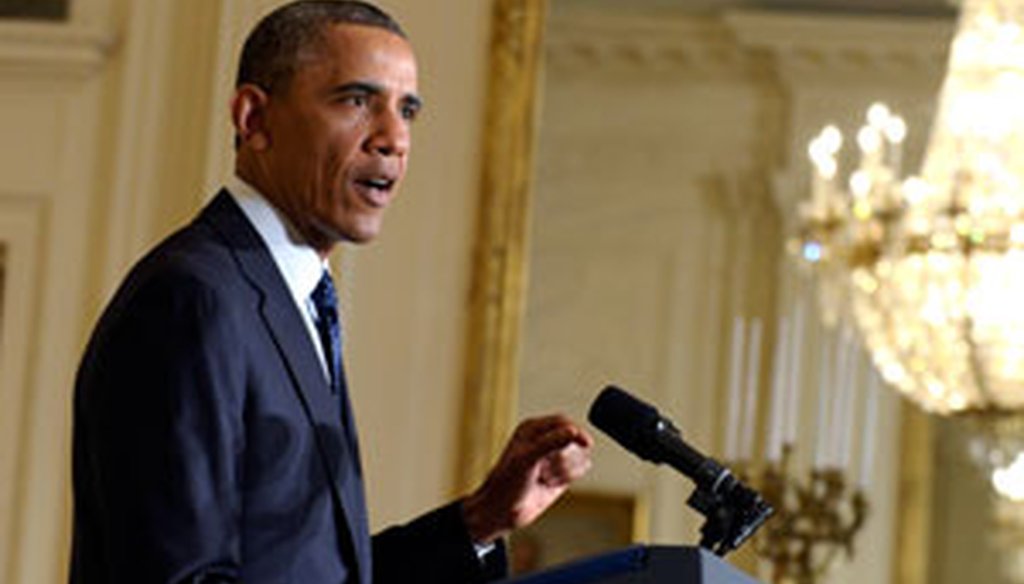
President Barack Obama speaks on the Internal Revenue Service's targeting of conservative groups for extra tax scrutiny on May 15, 2013. (AP)
Just four months into his second term, President Barack Obama has found himself dogged by questions in three controversies: the IRS' targeting of tea party groups for special scrutiny, a fresh round of questions about the attack on the U.S. diplomatic mission in Benghazi and the Justice Department's leak investigation involving reporters from the Associated Press.
It's a matter of debate which ones merit being called scandals, but there's no question that the three controversies have put the administration on its heels. And the tax brouhaha has also provided an opening for Republicans to raise a new concern about the one of their favorite bogeymen, the IRS and its new role enforcing Obamacare.
Although we have yet to fact-check claims about the leak investigation (we welcome suggestions if you have claims we should check), we've done several recently about the IRS and Benghazi:
IRS
Outside influence: Rep. Sander Levin, D-Mich., claimed that the inspector general for the IRS said there was "no political motivation" and "no outside influence" for targeting of tax-exempt applications from tea party groups. We rated that Mostly True.
IRS in charge of health care? Rep. Michele Bachmann, R-Minn., made three claims about the IRS' role in enforcing provisions of Obamacare. She earned a Pants on Fire for her claim on Fox News that the IRS is in charge of a big database with Americans’ "personal, intimate, most close-to-the-vest-secrets," a False for her claim that IRS is going to be in charge of health care, and a Mostly False for her claim that the agency will potentially have the power to delay or deny health coverage.
Tax code allows politics without disclosure: Rep. Xavier Becerra, D-Calif., said on Meet the Press that legal ambiguity allows some tax-exempt groups to engage in politics without revealing their donors, as formal campaign organizations must do. "We have a tax code that allows groups to use their political operations within the tax code, under the guise of a charity, to use undisclosed millions of dollars to do political campaigns," Becerra said. We checked the facts and rated the claim Mostly True.
IRS and burden of proof: Rep. Randy Forbes, R-Va., said in a Fox News interview that he's concerned the IRS has unusual powers because the agency "doesn't have to prove something against you . . . you've got the burden of proof." We checked the law and spoke with experts and rated that Mostly True.
Benghazi
Hillary Clinton’s ‘direct cables’: Sen. Rand Paul, R-Ky., blamed Hillary Clinton for inadequate security in Benghazi, Libya, where four Americans died on Sept. 11, 2012. "She was asked repeatedly to provide security in Benghazi on several occasions, including direct cables," he said on CNN’s State of the Union. The State Department was asked repeatedly for additional U.S. security staff in Libya. But we found no clear evidence — nor did Paul’s office provide any — that Clinton herself was made aware of those requests. For example, there’s no "direct cable" that automatically appears on the secretary of state’s desk. Instead, those cables (and millions of others) would have carried her name, and only those passed up the chain by staff would have reached her. She says these ones didn’t. We rated his statement Mostly False.
Americans told to ‘stand down’: Rep. Jason Chaffetz, R-Utah, told Fox News that more could have been done to protect Americans in Benghazi, Libya, the night terrorists attacked. "We had people that were getting killed, we had people who are willing to risk their lives to go save them and somebody told them to stand down." But the order to keep a small special forces team in Tripoli came after the four men killed in the attacks had already died, not as they were "getting killed" with a chance to save them. We rated his statement False.
Susan Rice on the Sunday shows: President Barack Obama's press secretary, Jay Carney, defended the administration against renewed charges that U.N. Ambassador Susan Rice had downplayed possible extremist involvement in the Benghazi attacks soon after they happened. "Susan Rice, when she went out on the Sunday shows … talked about the possibility that al-Qaida might be involved, or other al-Qaida affiliates might be involved, or non-al-Qaida Libyan extremists (might be involved), which I think demonstrates that there was no effort to play that down," he told journalists at a press briefing. We found that Rice barely mentioned the potential role of al-Qaida or its affiliates, and she urged caution about jumping to conclusions on the one occasion in which she did. We rated Carney's comment Mostly False.
Asked and answered? Obama himself told reporters the facts behind the attacks had been thoroughly investigated by an independent review board. "Over the last several months, there was a review board headed by two distinguished Americans, Mike Mullen and Tom Pickering, who investigated every element of" the Benghazi incident, he said. Actually, the review board did not look at every element of the incident. It looked at most of the security matters involved, but it didn't look at who conducted the attacks or at the administration's public comments in the days following. We rated Obama's statement Mostly False.
Our Sources
See Truth-O-Meter items






